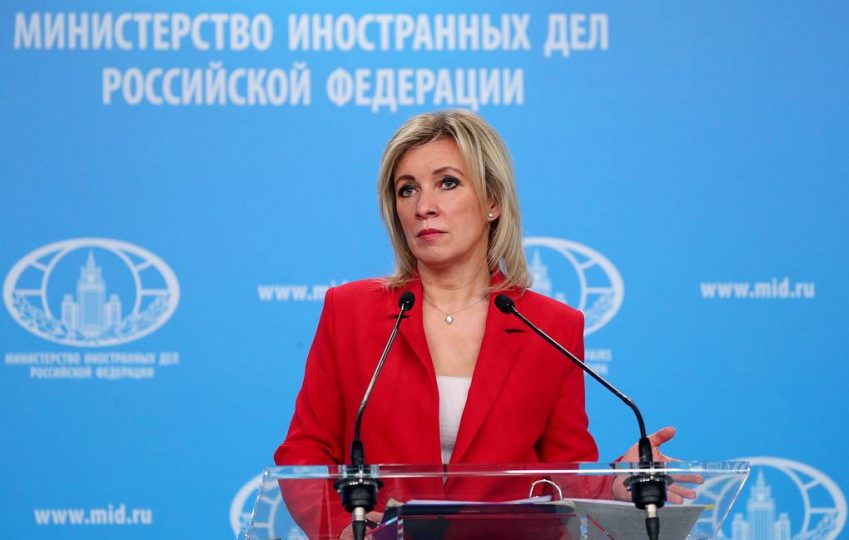The Organization for Security and Co-operation in Europe (OSCE) Special Monitoring Mission (SMM) in Ukraine has no longer been able to perform its former functions in the current political and legal circumstances, Russian Foreign Ministry Spokeswoman Maria Zakharova said on Friday in a statement on the termination of the OSCE SMM activities.
“In the current political and legal realities, it has become impossible for the mission to exercise its functions in accordance with its previous mandate, which covered the territory of the now independent DPR and LPR (the People’s Republics of Donetsk and Lugansk respectively – TASS),” the diplomat said.
“Therefore, Russia has not supported its extension for the next year. It means that its continued activities have no consensus support of the participating states, and therefore, cannot be conducted de jure,” she said.
In this regard, Moscow urges the OSCE Secretariat “to immediately commence measures to curtail the SMM activities, to realize its assets, to terminate employment contracts with its staff, and settle contractual obligations to service providers and renting agencies,” she said.
Zakharova pointed out that the SMM’s functions de facto were terminated on March 7, when all of its international staff were withdrawn from Ukraine, the DPR and the LPR.
“We draw particular attention to the inadmissibly of repeating cases when the OSCE assets, which are temporarily left behind in Ukraine, especially armored vehicles, fell into the hands of Ukrainian armed formations,” the statement says.
“We pay tribute to the work of the SMM staff. Russian nationals have worked with dedication alongside the mission’s international observers.”
“Regrettably, due to persistent resistance and pressure from Kiev and its Western backers, the SMM leadership did not fully communicate to the international community the information that its observers collected about ceasefire violations, destruction and civilian casualties in the DPR and the LPR that resulted from the punitive operation of the Ukrainian Armed Forces and nationalist battalions,” Zakharova continued.
“Over time, the professionalism and impartiality in the mission’s work were increasingly replaced with political bias and a selective approach to facts.”
The Russian Foreign Ministry spokeswoman pointed out that the mission’s leadership “used to blatantly play along with Kiev,” but failed to establish normal working contacts with the authorities and people of Donbass.
In addition, the SMM “did not properly address” the human rights situation, including the rights of ethnic minorities and the freedom of the media throughout Ukraine.
“The contrast between the rosy picture painted in the SMM reports and the real state of affairs, which is becoming more and more obvious now, is striking. This approach has delivered a serious blow to the reputation of the SMM and the entire OSCE, creating an image of ‘blind and deaf’ for the observers.
“Against this background, the important practical results of the mission’s work, including the safeguarding of necessary security conditions for critical infrastructure in Donbass to be repaired, have become less noticeable.
“We hope that the participating states and the OSCE Secretariat will learn the right lessons from achievements and shortcomings of the SMM’s eight-year operation,” Zakharova said.
OSCE mission in Ukraine
The SMM mandate had been renewed annually for one year since 2014. On March 31, 2021, it was extended until March 31, 2022.
The OSCE Special Monitoring Mission began its work in Ukraine on March 21, 2014, following a consensus decision by all 57 participating states. The mission brings together nearly 1,000 observers. The offices are located in Kiev, Donetsk and Lugansk.
In early March, OSCE Secretary General Helga Maria Schmid announced the evacuation from Ukraine of nearly 500 SMM observers after the start of Russia’s special operation.




